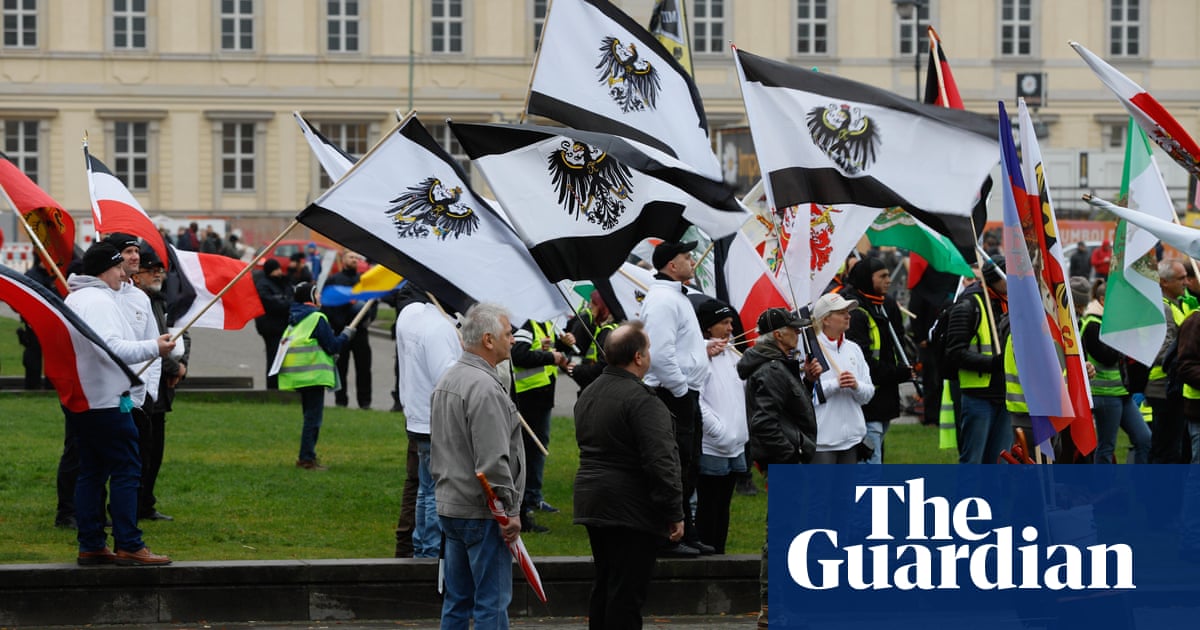
On 14 January, the 40,000 Britons who had joined the Facebook group Land for Sale UK awoke to find their newsfeed transformed.
Until then, the group had been a moderately sized message board for people looking to buy or sell small parcels of land. “We’d love a patch of land in the Falmouth and Penryn area to let the kids roam, grow fruit trees,” read one typical post.
But on Thursday morning, Land for Sale UK ceased to exist. Its new administrators had changed its branding and name to better reflect the group they wanted to run: it is now called “Supporters of free speech against Big Tech Fascism.” The main image, once a bucolic pastoral landscape, is now a poorly cropped photo of a statue of Cicero with a quote falsely attributed to the Roman orator by gun rights advocates in which he defends “any and every method of protecting ourselves”.
And the group’s “about” page has been changed to explain the new position of the group: “Banning people for for [sic] telling the truth or you don’t like their opinion or politics is wrong. If your a Libtard you dont belong here. Good bye.”
The bizarre saga underscores the extent to which Facebook groups, once central to the social network’s desire to devolve the hard work of content moderation to its user base, are increasingly becoming a major source of problems for the company. The administrator of a large Facebook group holds one of the most influential positions on modern social media, but comes with few checks or balances, allowing just a single person to radically change the focus of thousands or millions of people’s Facebook feeds.
For the group formerly known as Land for Sale UK, that means the 40,000 members suddenly began seeing content accusing Joe Biden of stealing the US election, anti-fascist campaigners of dressing up as Trump supporters to stage a false-flag attack on Congress, and Twitter of trying to censor the views of hardworking Americans.
Normally, posts on Land for Sale UK received little engagement. The small group had no advertising budget behind it, leaving posts appearing on users’ newsfeeds through “organic” sharing only, and requests to buy or sell agricultural land are not conventional viral material. But the takeover, ironically, was perfect for boosting user interactions: every confused comment was taken as a sign by Facebook’s algorithms that the content was particularly engaging, which led to it being pushed into more feeds, and receiving more comments.
None of the three new administrators of the group, all of whom appear to live in Southampton, replied to requests for comment from the Guardian. Shortly after they were asked about their decision to rebrand the page, it was switched to a “private” group, and users who tried to co-ordinate a transfer to a new Land for Sale group were banned from posting.
“I was surprised when a post popped up on my timeline from a group I never joined,” said Saffy, one of those users. “The content seemed to be from rightwing extremists sharing lots of links and articles to political agendas and conspiracies in support of Trump. I would never willingly join a group that supports this type of propaganda, but when I reported to Facebook I was told it did not go against their community standards.
“By allowing groups like this to continue, Facebook is complicit in perpetuating the message of these extreme far right groups.”
Facebook said it was investigating the issue.
Land for Sale is by no means the largest Facebook group to be taken over in such a fashion, though its rebranding is more extreme than most. Earlier this month, Substack email newsletter author Ryan Broderick reported on Giggle Palooza, a meme page with 1.6 million followers, which transformed almost overnight from a page that posted mild Christian gags (“being a christian isn’t easy, but the retirement plan is amazing”) to “posting QAnon content and warning its followers that a military dictatorship is imminent”.
In 2017, just a month after the inauguration of Donald Trump, Mark Zuckerberg posted a 6,000-word manifesto on the future of Facebook in which he described a desire to focus on “meaningful” groups as an attempt to counter the “striking decline in the important social infrastructure of local communities”.












